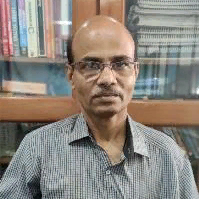
Sunil Surve
Work place: Department of Computer Engineering, Fr. Conceicao Rodrigues College of Engineering, Bandra, Mumbai 400050, India
E-mail: surve@fragnel.edu.in
Website: https://orcid.org/0000-0002-2568-9911
Research Interests: Computer Architecture and Organization, Robotics, Computational Learning Theory, Computer systems and computational processes
Biography
Dr. Sunil Surve, completed his PhD from VJTI, Mumbai in robotics and artificial intelligence. Working as a Professor in Fr. Conceicao Rodrigues College of Engineering, Mumbai. He published more than 30 research papers in various journals and conferences. His research interests include machine learning, robotics and computer architecture.
Author Articles
Deep Convolution Neural Networks for Cross-Dataset Facial Expression Recognition System
By Rohan Appasaheb Borgalli Sunil Surve
DOI: https://doi.org/10.5815/ijem.2022.06.05, Pub. Date: 8 Dec. 2022
Facial Expressions are a true and obvious way to represent emotions in human beings. Understanding facial expression recognition (FER) is essential, and it is also useful in the area of Artificial Intelligence, Computing, Medical, Video games, e-Education, and many more. In the past, much research was conducted in the domain of FER using different approaches such as analysis through different sensor data, using machine learning and deep learning framework with static images and dynamic sequence. Researchers used machine learning-based techniques such as the Multi-layer Perceptron Model, k- Nearest Neighbors, and Support Vector Machines were used by researchers in solving the FER. These methods have extracted features such as Local Binary Patterns, Eigenfaces, Face-landmark features, and Texture features. Recently use of deep learning algorithms in FER has been considerable. State-of-the-art results show deep learning-based approaches are more potent than conventional FER approaches.
This paper focuses on implementing three different Custom CNN Architecture training them on FER13 Dataset and testing them on CK+ and JAFFE Dataset including FER13 after fine-tuning. The three pre-trained models' on FER2013 after fine-tuning have significantly improved the accuracy of the resulting CNN on the target test sets between 65.12 % to 79.07% on the JAFFE dataset and 50.96% to 68.81% on the CK+ dataset.
[...] Read more.Other Articles
Subscribe to receive issue release notifications and newsletters from MECS Press journals